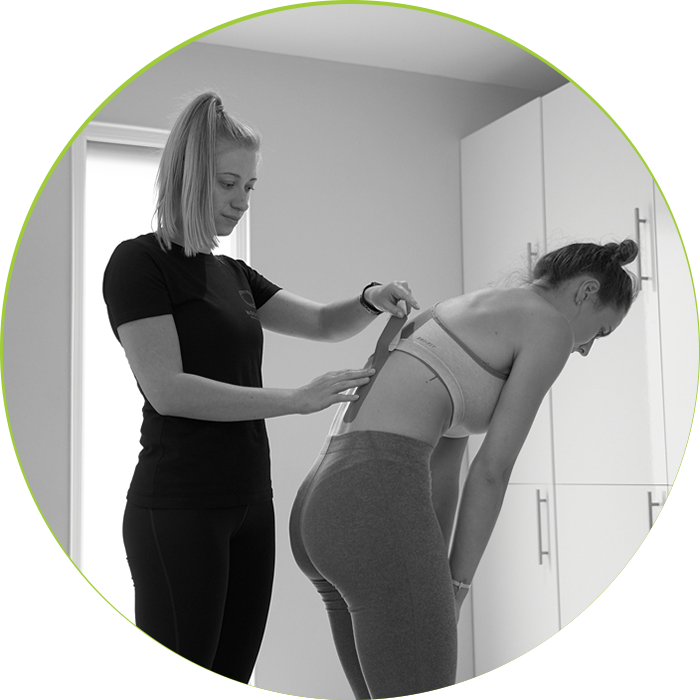Back pain is a very common complaint – an estimated 60-80% of people are affected at some point in their lifetime. People can experience back pain at any age, but it is most common among the ages of 35 and 55. It is one of the main reasons for sickness absence from work. More often than not the problem is related to a strain, rather than nerve damage. More serious causes of back pain are quite rare. Back pain is classified as either ‘acute’ or ‘chronic’. This relates to the length of time that you have had your symptoms.
If you are suffering from constant back pain, we need to find out what is causing your pain and how you can avoid further injury. Starting or continuing to exercise with biomechanical dysfunction will cause injury.

Treatment of back pain with physiotherapy.
Our therapists specialise in maintaining and improving movement and mobility. After a thorough assessment we may recommend a course of manual therapy involving spinal mobilisation or manipulation and techniques such as acupuncture, massage, electrotherapy or supportive taping. Other treatment can include exercises, stretches and postural advice.
Our therapists at Holcombe Health Clinic have extensive training and experience of treating patients with low back pain. We employ up to date and medically researched treatment techniques and advise you on the best treatment options whilst guiding you through the recovery process.
Appropriate back pain treatment.
- manual therapy (joint mobilisation and manipulation)
- soft tissue therapy (deep tissue, trigger pointing, myofascial release)
- acupuncture
- core stability and strength training
- electrotherapy
- education and advice
- exercise programme – we can integrate your exercises with your existing training programme and work closely with others involved in your management i.e.: personal trainers and coaches
- Kinesio taping
- dynamic taping
- inversion table
Other symptoms.
You should consult your doctor as soon as you can if you have any of the following symptoms as well as back pain:
- constant unremitting pain, especially in the night
- pain down your legs and/or below your knees
- numbness or weakness in either leg or in the buttock region
- high temperature
- incontinence: loss of bladder or bowel control